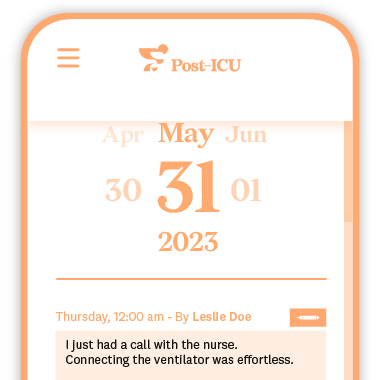Intensive care unit (ICU) professionals face immense physical and emotional challenges in their demanding roles. In fact, in one study 81% of ICU nurses experience one or more symptoms of burnout1Kerlin, M. P., McPeake, J., & Mikkelsen, M. E. (2020). Burnout and joy in the profession of critical care medicine. Annual Update in Intensive Care and Emergency Medicine 2020, 633-642.. Providing comprehensive health and well-being support is crucial to help essential workers cope with stress, prevent burnout, and maintain their own mental and physical health. It’s also important that ICU professionals are aware of the various support resources available to them.
Types of Support Needed
Emotional and Mental Health Support
Emotional and mental health support comes in various forms. Counseling and therapy are the first that come to mind, but the power of peer support groups should not be disregarded. Through individual or group therapy, healthcare providers learn coping techniques, stress management and build resilience.
Physical Health Support
Mental health is frequently closely tied to physical health. This is often overlooked until physical health is in such a dire state that it has to be addressed. However, in the spirit of “prevention is better than treatment”, physical health needs are best met before a problem arises. This includes regular exercise and physical activity, ergonomic adjustments in the hospital to reduce strain during long shifts, and healthy meal options to ensure optimal energy levels.
Professional Support
Finally, developing ICU staff skills and knowledge can help them perform their jobs better, which has multiple benefits. Not only will patients have better outcomes with a more skilled staff, but innovative procedures, more efficient workflows, and improved approaches to patient care also result in more satisfied staff. Through continuous education, mentorship programs, and career growth opportunities, ICU staff should be supported in their professional development.
Key Resources for ICU Professionals
Mental Health Apps and Digital Resources
There are a variety of mental health apps available. These apps are not specialized for healthcare professionals but do help with the unique burden ICU staff carry.
- Calm – meditation, sleep stories, music
- Headspace – guided meditation, mindfulness exercises
- Sanvello – cognitive behavioral therapy, mood tracking
Peer Support Networks
Peer support programs are becoming increasingly common in hospitals to provide emotional and mental health support for staff, especially those working in high-stress environments like intensive care units. These programs leverage the power of peer-to-peer connections to help healthcare workers cope with the unique challenges of their roles.
Two more prominent peer support programs are Emory EmBRACE peer support and MedStar for Wellbeing. You can reach out to your superiors to ask for guidance and if there’s an existing peer support group in your hospital.
Employee Assistance Programs (EAP)
EAPs exist to help employees, in our case critical care staff, deal with personal issues that might affect their work, health and overall wellbeing. As you might imagine, this type of support is invaluable for people who help others survive.
This service is typically available to individuals 24/7 through various channels, but EAP counselors can also work with organizations.
Examples: ESI Employee Assistance Group, AllOne Health
Leadership Support
It’s simply impossible to provide enough high-quality support resources to ICU staff without leadership support. One might say that leadership support is the most important type of support healthcare workers can get. A leadership that prioritizes the health and well-being of their employees will provide enough support in the workplace, listen to their staff and meet their needs.
Post-ICU Digital Diary: Supporting Everyone in the ICU
While digital ICU diaries have a positive effect on ICU patients and their families, experience has shown they provide benefits to ICU staff as well.
- Improved communication: a digital diary makes it easy for healthcare providers to give timely, relevant updates to families and friends. ICU nurses appreciate having this open channel of communication because it helps them form better relationships with family members, which increases their satisfaction in the workplace
- Increased appreciation: families are often not aware of the level of care ICU staff is providing to their loved one. An ICU diary can help capture all these invisible activities that actually mean a lot. This leads to families and patients appreciating their ICU caregivers even more
- Helping the patient after the ICU: ICU diaries are used by patients even after the ICU. They read through entries, piecing together their ICU stay to better process what happened. ICU staff entries are invaluable for patients and help them long after their ICU stay. ICU nurses tell us how knowing that they can make a difference even after their patients leaves the ICU is very fulfilling and motivating
The Post-ICU Digital Diary is a single tool that can significantly benefit ICU staff, patient and family wellbeing, making the ICU a better place for everyone.





